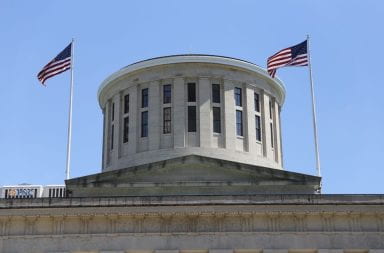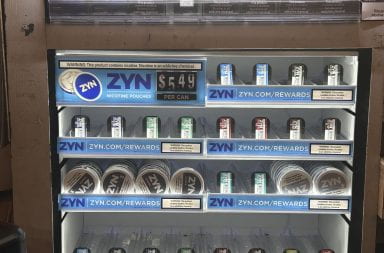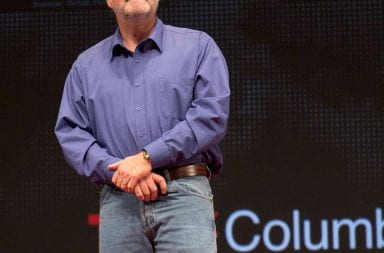
Studies have shown that political independents have a more negative approach to decision-making compared to their partisan counterparts. Credit: Ben Latham | Lantern Reporter
As political polarization continues to reign supreme, people who don’t identify with a political party express the most negativity when making political choices — and it doesn’t end with politics, according to a recent publication examining data from online surveys conducted for the American National Election Studies with Pew Research Center.
It was determined that independents are likely to make political choices based on who they dislike. The outcome in the nonpolitical domain was similar after analyzing a study that involved participants using a feeling thermometer to rate preferences, including their favorite baseball team, school subject and ice cream flavor.
Joseph Siev, a postdoctoral fellow at the University of Virginia’s Darden School of Business, who led the research as a doctoral student in psychology at Ohio State, said this type of negative thinking among independents is a contrast to what people are accustomed to hearing about political polarization.
“There are these two kinds of negativity, just like how much we hate the opponents, which partisans still tend to be stronger on,” Siev said. “But then when we think about the choice itself, and both options, that’s where the independence negativity comes in.”
According to Pew Research Center, negative voting among independents both before 2008 and after 2016 was roughly 30 to 40 percent higher than it was among partisans.
Daniel Rovenpor, assistant professor of social psychology at CUNY Baruch College and former postdoctoral fellow at Ohio State, said the findings were surprising given that people tend to blame partisans for the polarization and disagreements that drive negativity, leaving independents out of the conversation.
“When you think about what it means to be an independent, it means you don’t feel like you identify with either of the available political options and find flaws in the major political parties,” Rovenpor said. “From that, it could be reasoned that they would exhibit more negativity.”
Richard Petty, Ohio State professor of psychology, put the thought process of independents in the context of Ohio State’s rivalry with the team up north, asking if someone would prefer Ohio State to win “because they want Michigan to lose.”
Due to evidence that independent negativity is not limited to the political domain, more studies are being planned that will focus more on independents’ nonpolitical decisions to better understand how they approach the world differently from partisans, Petty said.
“The big question is, who are the identifiers and how did they get to be that way?” Petty said. “It’s that domain that I think is ripe for future research and we really want to explore that more.”


